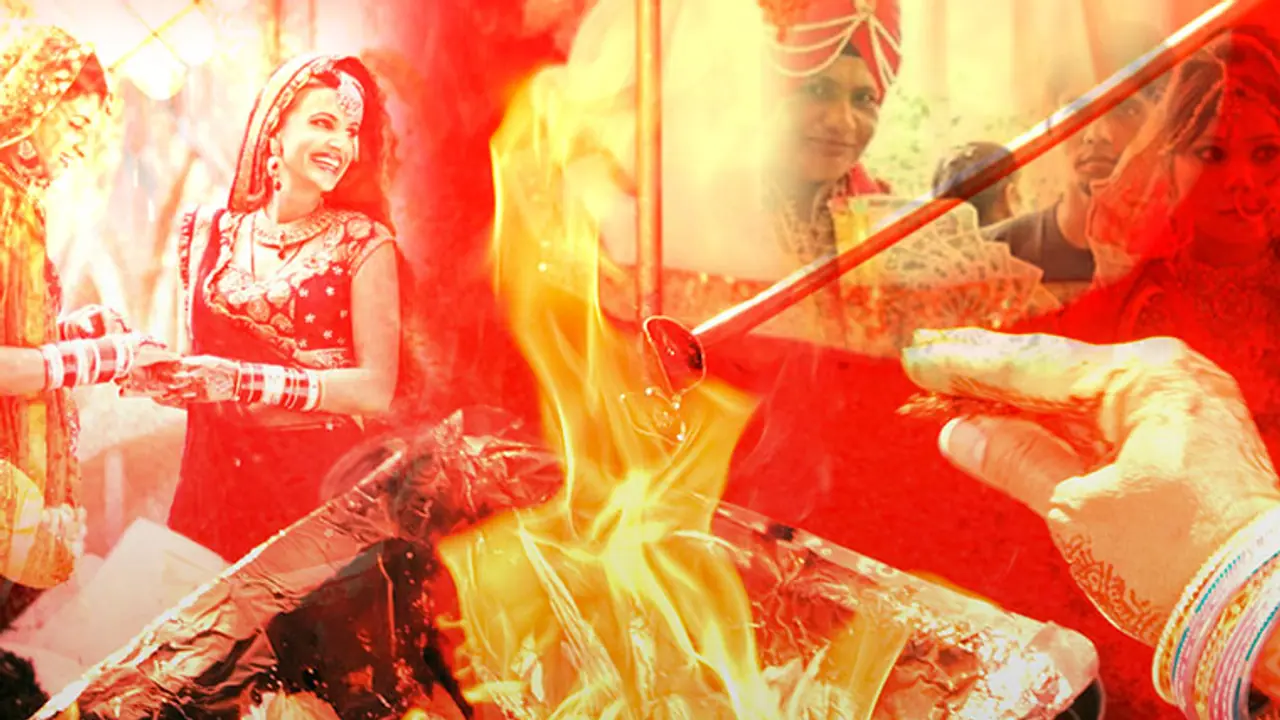Two women tie knot in Koramangala, drawing criticism from their parents. They fell in love with each other at an early age, but waited to be a major to elope. Police is clueless as to how to approach the case.
Unlike the 22 countries across the world, which have legalised same-sex marriage, India is yet to accept this progressive step. Given the social set-up of the country and the complicated law and order situation, same sex marriage laws need years to be normalised. These questions were triggered in the face of a situation in Koramangala where the families of two women and the police were left clueless when they married each other. While the debate over their fate is on, the city is still mulling over the turn of events.

A 25-year old woman tied the knot with a 21-year old woman at a temple in Koramangala. The parents of the younger woman have filed a complaint with the police, who are now trying to reconcile the women with their families through counselling. Police is trying to tell these women about the "negative fallout" of the unnatural union. It is also believed that the women are distant relatives. The older woman is a call center employee and the younger one is a B.Com student in a private college. While the former's father is a businessman, the latter's father solemnises marriages.
In her statement, the older woman Ranjitha (name changed) said that she was attracted to Kavita (name changed) since childhood. But since the latter belonged to an orthodox family, Ranjitha decided to familiarise Kavita with the modern ways of life and thought processes. She also took her to malls and bought her expensive gifts. When Ranjitha expressed her love for Kavita, the latter initially turned the proposal down. However, Ranjitha did not lose hope and pursued Kavita who ultimately relented. The duo then planned to run away from their families since they knew the repurcussions of the relationship.
While Kavita was putting up at a PG, Ranjitha went hunting for a house. After they found a place, they moved in together within two weeks. The police traced the two women but could not do anything as they both were adults and said that did not want to go back to their families as they were in love with each other and were happy together. Despite the parents complaining to the police about the two women's wedding and active sexual life, they could not do anything as they did not have jurisdiction unless there is a specific complaint from one of the women. The case was then referred to Vanitha Sahayavani in police commissioner’s office. Senior counsellor BS Saraswathi said that she had spoken to both the women and their counselling was on. The parents were even considering “psychiatric counselling” .
According to section 377 of the Indian Penal Court, same sex marriage in India is a criminal offence. It states, "Whoever voluntarily has carnal intercourse against the order of nature with any man, woman or animal, shall be punished with imprisonment for life, or with imprisonment of either description for a term which may extend to 10 years, and shall also be liable to fine."
However, speaking to the Bangalore Mirror, Gowthaman Ranga, of the Alternative Law Forum said that since the women were adults and had found love in each other, they cannot be prosecuted under Section 377. The report further said, “The 2013 judgement categorically says that one cannot be booked under Section 377 based on identity {gays or lesbians}. However, it varies from case to case.”
Former public prosecutor S Doreraju said, “Lesbian marriage is not recognized and is a punishable offence under Section 377, provided one of them becomes a complainant. Parents of both the women can also lodge a complaint but not under IPC section 377. They can give other reasons such as ‘psychological
imbalance’ or ‘negatively influencing’ the other woman.” Some of the other experts opine that since the women did not do anything in public, it is difficult to prove anything against them.
Meanwhile, both the women have decided not to go back to their parents and stay at the NGO till the issue is resolved.
However, this is not the first such instance in India. In Punjab, a lady sub-inspector Manjit Kaur allegedly married a woman sub-ordinate in a grand ceremony. The marriage broke all stereotypes as the sub-inspector donned a turban and her partner came in a chariot. Unlike the two girls in Karnataka, their marriage was solemnised in a grand Hindu ceremony.
